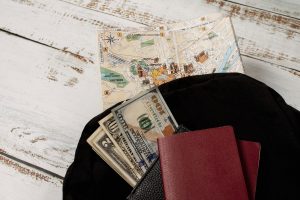
Why Exchange Rates Matter
Exchange rates reflect the relative value of one currency compared to another and are subject to continuous fluctuation influenced by factors like economic indicators, geopolitical events, and market sentiment. Understanding exchange rates is crucial because it directly affects how much foreign currency you’ll receive for your money. Small differences in exchange rates can lead to significant variations in the amount of local currency you have at your disposal.
Where to Exchange Currency
Before traveling, research where you can exchange your money. Options typically include banks, currency exchange kiosks, airports, and hotels. Banks generally offer competitive rates but may charge fees. Currency exchange kiosks and airports are convenient but may have higher fees and less favorable rates. It’s advisable to compare rates and fees across different providers to get the best deal. Currency exchange in Covent Garden offers convenient options to acquire local currency for your shopping and dining experiences.
Timing Your Currency Exchange
The timing of your currency exchange can impact how much money you receive. Exchange rates can fluctuate daily, so it’s wise to monitor them and consider exchanging currency when rates are favorable. Avoid last-minute exchanges at airports, where rates are often less favorable due to convenience fees.
Understanding Fees and Commissions
Various fees and commissions may apply when exchanging currency. These can include transaction fees, service charges, and hidden costs embedded in the exchange rate itself. Always inquire about fees upfront to avoid surprises. Some credit cards offer competitive exchange rates and may waive foreign transaction fees, making them a convenient option for payments abroad.
Consider Using Local Currency
Using local currency for transactions within the destination country can sometimes be more cost-effective than paying in your home currency or using credit cards that charge foreign transaction fees. It’s also practical for small purchases, transportation fares, and tipping.
Safety and Security
When exchanging currency, prioritize safety and security. Avoid exchanging money with unauthorized or unlicensed providers, as counterfeit currency and scams are risks. Use reputable institutions and be cautious when carrying large sums of cash. Consider using a secure travel money card or traveler’s checks as alternatives to cash.
Plan for Emergencies
It’s prudent to have a contingency plan in case of emergencies. Familiarize yourself with the location of banks, ATMs that accept your card network, and embassy or consulate services that can assist with financial emergencies.
Budgeting and Currency Conversion Apps
Budgeting for your trip and tracking expenses in local currency can help you manage your finances effectively. Currency conversion apps can provide real-time exchange rates and assist in making informed financial decisions while traveling.
Final Thoughts
Currency exchange is a fundamental aspect of international travel that requires careful planning and consideration. By understanding exchange rates, choosing reputable providers, minimizing fees, and prioritizing safety, you can navigate currency exchange with confidence and maximize the value of your money abroad. Remember to plan ahead, stay informed, and enjoy your travels knowing that you’re prepared to handle currency matters efficiently.

